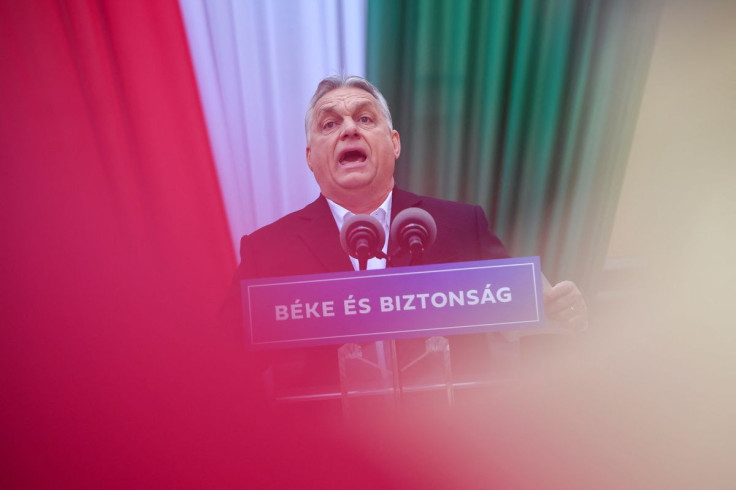Orban On Track For Crushing Victory As Ukraine War Solidifies Support

Hungary's nationalist Prime Minister Viktor Orban looked set for a fourth consecutive win in Sunday's election, as voters endorsed his ambition of a conservative, "illiberal" state and shrugged off concerns over Budapest's close ties with Moscow.
Russia's Feb. 24 invasion of Ukraine had appeared to upend Orban's campaign in recent weeks, forcing him into awkward manouvering to explain decade-old business relations with Russia.
But he mounted a successful campaign to persuade his Fidesz party's core electorate that the six-party opposition alliance of Peter Marki-Zay promising to mend ties with the European Union could drag the country into war.
Preliminary results with 57.6% of national party list votes counted showed Orban's Fidesz party leading with 55.7% of votes versus 32.5% for Marki-Zay's opposition alliance. Fidesz was also ahead in the vast majority of single-member constituencies.
Based on current partial results, the National Election Office said Fidesz would have 134 seats, a two-thirds majority, and the opposition alliance would have 58 seats. A far-right party called Our Homeland would also make it into parliament, passing the 5% threshold.
His comfortable victory, which looks all but certain now, could embolden Orban, 58, in his policy agenda which critics say amounts to a subversion of democratic norms and a muzzling of the media.
"This is the result you can achieve in a country where one person completely rules the media, where there is no debate," said Katalin Cseh, a European Parliament member from Momentum Movement in the six-party alliance.
"We will keep fighting for our homeland, for Hungary to be a happy and free country one day."
One of Europe's longest-serving leaders, Orban has emerged as a vocal supporter of anti-immigration policies and an opponent of tough energy sanctions against Moscow.
Critics say he has sought to cement one-party rule by overhauling the constitution, taking control of a majority of media outlets and staffing key government posts with loyalists.
Still, he wins favour with many older, poorer voters who espouse his traditional Christian values and with families who benefit from a host of tax breaks and price caps on fuel and some foodstuffs.
The election comes at a time when global energy woes and steep labour shortages in the region have fuelled inflation increases throughout central Europe. Consumer price growth reached an almost 15-year high of 8.3% in February in Hungary.
Orban has condemned the Russian invasion and has not vetoed any European Union sanctions against Moscow even though he said he did not agree with them. But he has banned any transport of arms to Ukraine via Hungarian territory, facing criticism from his nationalist allies in Poland.
Hungary's parties are fighting for a total of 199 parliamentary seats, of which 106 are filled in individual constituencies based on first-past-the-post system.
A further 93 members will be elected by proportional representation from national lists which consist of party lists and national minority lists.
© Copyright Thomson Reuters 2024. All rights reserved.





















